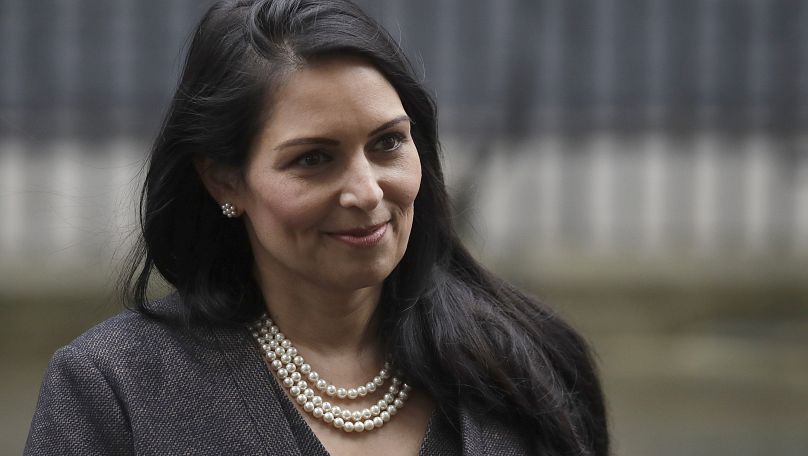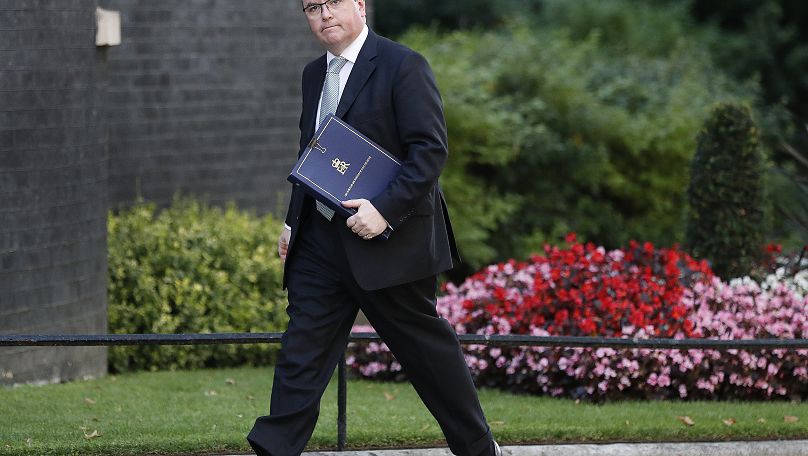Controversial new legislation introduced to the British parliament seeks to increase sentencing and monitoring for terrorism offences.
Terror suspects in the UK could have their movements monitored indefinitely if new legislation being introduced to parliament passes.
 ADVERTISEMENT
ADVERTISEMENT
 ADVERTISEMENT
ADVERTISEMENT
The Counter-Terrorism and Sentencing Bill entered parliament on Wednesday as the British government continued its mantra of toughening up on terror — something that it highlighted after two attacks in London last year.
Referring to the attacks, which were carried out by two convicted terrorists on early release from prison, Home Secretary Priti Patel said they revealed "serious flaws" in the way the law dealt with them.
She added: "We promised to act and today we are delivering on that promise. Those who senselessly seek to damage and destroy lives need to know we will do whatever it takes to stop them."
But this new bill has been met criticism from human rights defenders, who say the measures would be a "draconian" setback in administering justice.
What's in the bill?
People suspected of terror offences, under current law, can be imposed with terrorism prevention and investigation measures known as Tpims, which have a set time limit of two years.
They generally monitor the suspect using curfews and travel restrictions over the time period.
But under the new bill, this two-year limit could be removed indefinitely, and the burden of proof to impose them in the first place could be lowered.
"We still need to see exactly what’s being proposed, but the suggestion that existing Tpims measures are to be made even more draconian would be a serious setback for the proper administration of justice in this country," said Amnesty International UK’s legal expert Rachel Logan.
“It was never right to drastically curtail people’s liberty on the basis of secret, untested evidence using control orders or Tpims - and we seem to be diving headlong into that territory where the standard of proof is extremely flimsy and people’s liberties can be curtailed on an indefinite basis."
Changes to sentencing
Also under the Bill are propositions to increase sentencing procedures for judges presiding over terror cases.
In February, emergency legislation was passed into law to block the automatic early release of terrorism offenders; the new bill seeks to put an end early release in general for the most serious crimes.
A new "Serious Terrorism Sentence" has also been proposed, carrying a prison term with a minimum of 14 years behind bars, and a further 25 years on licence.
The maximum penalty for a number of lesser offences, including being a member of a terror organisation, would see maximum sentences increased by four years to 14 years.
Courts will also be given the option to consider if an offence is terror-related to impose harsher sentences, while offenders could be required to undertake lie detector tests.
"Terrorists and their hateful ideologies have no place on our streets. They can now expect to go to prison for longer and face tougher controls on release," said Justice Secretary and Lord Chancellor Robert Buckland.
He added: "From introducing a 14-year minimum for the most dangerous offenders, to putting in place stricter monitoring measures, this government is pursuing every option available to tackle this threat and keep communities safe."












